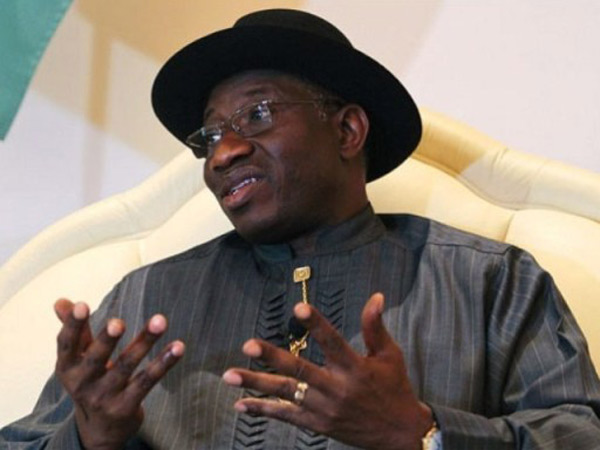President Goodluck Jonathan fulfilled a pledge he made to Nigerians. As he exuded the expected confidence in the run-up to this year’s presidential election, Jonathan had repeatedly pledged that if he lost at the polls, he would accept the outcome and concede victory.
Exactly 5:15 pm, he kept his word. He telephoned the winner of the election, Muhammadu Buhari, to congratulate him. In the morning of that day, Vice President, Namadi Sambo, came to the President’s residence, and later followed Jonathan to the office. The President also summoned his most senior aides and informed them of his resolve to accept defeat. The calmness and serenity of the Aso Rock Villa on that Tuesday were remarkable.
A cursory look at the premises makes it appear that fewer staff reported to work. However, many of the workers who reported for work were glued to the television sets in the offices,watching the unfolding scenario. A feeling of foreboding began to envelope the expansive presidential edifice, and came to surface when word filtered out that the President had already briefed his senior aides on his stoic decision.
Things remained that way with some presidential aides going in and out of the President’s office. No other unusual events or visitors were noticed that day as INEC continued announcing the results. Vice President Sambo himself stuck with the President and didn’t even work from his own office. Making the historic telephone call to Buhari just a matter of time. Eventually, Jonathan made the call to Buhari and a new wave of expectancy mixed with relief ensued. Soon after, a delegation of the National Peace Committee on 2015 Elections drove into the Villa to thank the President for that statesmanly action.
Chaired by former Head of State, Abdusalami Abubakar, the delegation’s visit to Aso Rock provided the opportunity to have the first public glimpse of the President since his defeat at the poll. He was calm and smiled as he received his guests. As he made a short broadcast to the nation later that night to formally announce his decision, Jonathan etched some words on marble – “I promised the country free and fair elections. I have kept my word. I have also expanded the space for Nigerians to participate in the democratic process. That is one legacy I will like to see endure.” He added his peace mantra – “As I have always affirmed, nobody’s ambition is worth the blood of any Nigerian.
The unity, stability and progress of our dear country is more important than anything else.” The official working week ended with the President breaking his Lenten fast on Thursday night with a delegation of the Abuja chapter of the Christian Association of Nigeria (CAN) at his official residence. A remarkable way to mark this year’s Easter celebrations. Chairman of Abuja CAN, Reverend Israel Akanji, even drew a parallel between Jonathan’s concession of defeat to his opponent for sake of peace and unity to the self sacrifice Jesus Christ made with his life on the Cross for the redemption of mankind.
With his acceptance of defeat, it could be rightly said that Jonathan indeed made a sacrifice to keep Nigeria one. Afterall, beyond Jonathan and Buhari, and with doomsday prophecies about 2015, Nigeria has turned out to be the real winner in this presidential contest. Apart from the soothing balm President Jonathan’s action has spread over the country, he has now emerged an icon of democracy from Nigeria to serve as shining example to Africa and the world. In Malawi, Hastings Banda was defeated at the polls by Bakili Muluzi in 1994 and he conceded. Zambia’s Rupiah Banda handed over to Michael Sata in 2011.
Senegal’s Abdoulaye Wade did it in 2012 when he conceded defeat to Macky Sall. Now, Jonathan has done it. Love him or hate him, and despite what the eventual score card of his tenure will be or his human and administrative failings, or not even keeping all of his promises in the past, Jonathan has raised the bar in the quest to nurture Nigeria’s democracy. How? At the time it mattered most, he kept his word!

